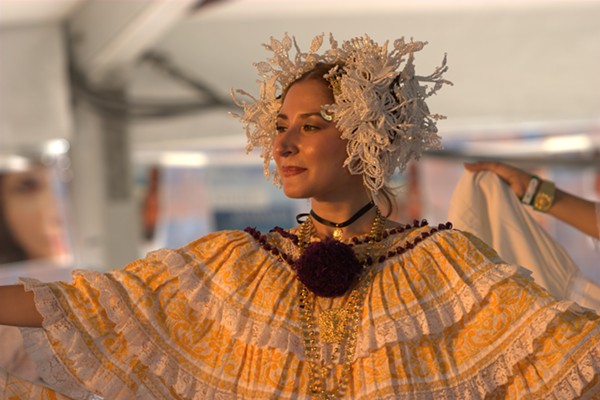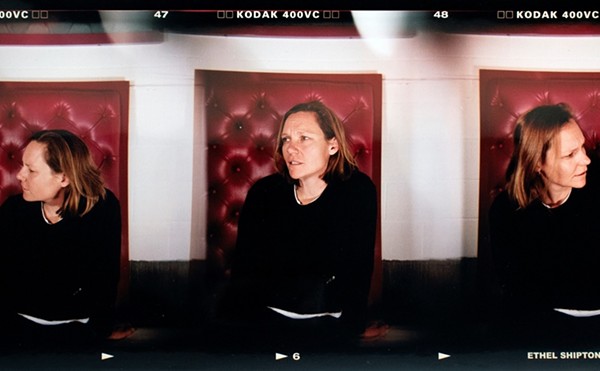By Jo Ann Andera
San Antonio is at an interesting crossroads. It’s been 300 years since our founding and 50 years since HemisFair opened the door to a larger world. A new generation is coming of age, and as they ask questions about who they are, where they come from and what they stand for, we need to be there to show them and help them experience it, because the fact is, we’re all Texans.
That’s a big title, and it has a lot of meaning. What does it mean to be Texan? Travelers often ask what Texas is all about, and why Texans have such a strong sense of identity and state pride. For the past 46 years, the answer has been at the Texas Folklife Festival. The tradition continues June 8 – 10 this year.
As a statewide celebration, participants come from come from nearly 70 towns around the state. There are 250 participating groups, including 60 traditional crafters, 27 ethnic food vendors serving more than 150 authentic recipes, add more than 80 performing groups—it’s a Texas-sized party.
Every cultural group and artisan brings something special to Texas. They have preserved parts of the Texan identity through generations by passing their traditions and skills along. Texan identity continues to evolve as new cultures come to Texas and make it their home. They all come to the Texas Folklife Festival to share that history.
Yes, re-enactors can talk all about the Alamo and the cowboy era that everyone associates with Texas, but those are stitches in a much bigger quilt. There are German polka bands, Soul Food cooks, blacksmiths, Lebanese dancers, Alsatian sausage makers, potters, Scottish pipers, American Indian fry-bread makers, leather workers, Brazilian Capoeira dancers, Greek gyro makers, wood carvers, and dozens more.
Texans come from all over the world, bringing their culture with them. Culture doesn’t disappear, even when crossing oceans. Cultures come together and build something greater, each lending its own spices, notes, and textures to the mix.
A community of Romanians has been building their home in San Antonio. They will introduce themselves at this year’s festival by serving a treat from Transylvania, the Chimney Cake. To make this confection, a cook rolls dough around a pin, bakes it over an open fire, and then rolls it in walnuts, cinnamon, or other tasty condiments.
Also appearing for the first time at the festival are the Congolese. Their Astuce Kitchen will prepare a delicious traditional menu and the Congolese choir will bring their gospel music to the festival.
These new groups join the veterans, or new generations carrying on traditions their families passed to them. One example is the Hudspeth River Ranch. Owner Claudia Ball, a past festival director, used to make jam and preserves. It’s a tradition her daughter, Alice Ball Strunk, has carried on the past three years since Claudia’s passing.
Through the festival’s 47 years, new generations have stepped up and kept traditions going. Other communities are rediscovering themselves and remembering what parents and grandparents taught them. Texans come from all over, and they’re proud of who they are. Sure, we have our differences, but good food and good music bring us together.
This is Texas’ family reunion, giving us the opportunity to remember the people and the traditions that shape us. Folklife is the spirit of Texas, alive and well.
San Antonio is at an interesting crossroads. It’s been 300 years since our founding and 50 years since HemisFair opened the door to a larger world. A new generation is coming of age, and as they ask questions about who they are, where they come from and what they stand for, we need to be there to show them and help them experience it, because the fact is, we’re all Texans.
That’s a big title, and it has a lot of meaning. What does it mean to be Texan? Travelers often ask what Texas is all about, and why Texans have such a strong sense of identity and state pride. For the past 46 years, the answer has been at the Texas Folklife Festival. The tradition continues June 8 – 10 this year.
As a statewide celebration, participants come from come from nearly 70 towns around the state. There are 250 participating groups, including 60 traditional crafters, 27 ethnic food vendors serving more than 150 authentic recipes, add more than 80 performing groups—it’s a Texas-sized party.
Every cultural group and artisan brings something special to Texas. They have preserved parts of the Texan identity through generations by passing their traditions and skills along. Texan identity continues to evolve as new cultures come to Texas and make it their home. They all come to the Texas Folklife Festival to share that history.
Yes, re-enactors can talk all about the Alamo and the cowboy era that everyone associates with Texas, but those are stitches in a much bigger quilt. There are German polka bands, Soul Food cooks, blacksmiths, Lebanese dancers, Alsatian sausage makers, potters, Scottish pipers, American Indian fry-bread makers, leather workers, Brazilian Capoeira dancers, Greek gyro makers, wood carvers, and dozens more.
Texans come from all over the world, bringing their culture with them. Culture doesn’t disappear, even when crossing oceans. Cultures come together and build something greater, each lending its own spices, notes, and textures to the mix.
A community of Romanians has been building their home in San Antonio. They will introduce themselves at this year’s festival by serving a treat from Transylvania, the Chimney Cake. To make this confection, a cook rolls dough around a pin, bakes it over an open fire, and then rolls it in walnuts, cinnamon, or other tasty condiments.
Also appearing for the first time at the festival are the Congolese. Their Astuce Kitchen will prepare a delicious traditional menu and the Congolese choir will bring their gospel music to the festival.
These new groups join the veterans, or new generations carrying on traditions their families passed to them. One example is the Hudspeth River Ranch. Owner Claudia Ball, a past festival director, used to make jam and preserves. It’s a tradition her daughter, Alice Ball Strunk, has carried on the past three years since Claudia’s passing.
Through the festival’s 47 years, new generations have stepped up and kept traditions going. Other communities are rediscovering themselves and remembering what parents and grandparents taught them. Texans come from all over, and they’re proud of who they are. Sure, we have our differences, but good food and good music bring us together.
This is Texas’ family reunion, giving us the opportunity to remember the people and the traditions that shape us. Folklife is the spirit of Texas, alive and well.

KEEP SA CURRENT!
Since 1986, the SA Current has served as the free, independent voice of San Antonio, and we want to keep it that way.
Becoming an SA Current Supporter for as little as $5 a month allows us to continue offering readers access to our coverage of local news, food, nightlife, events, and culture with no paywalls.
Scroll to read more Arts Stories & Interviews articles
Newsletters
Join SA Current Newsletters
Subscribe now to get the latest news delivered right to your inbox.















